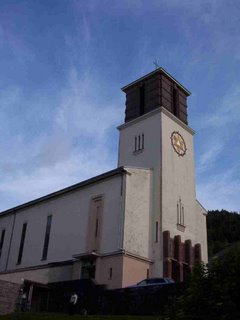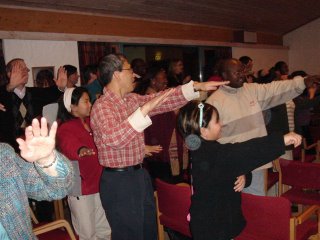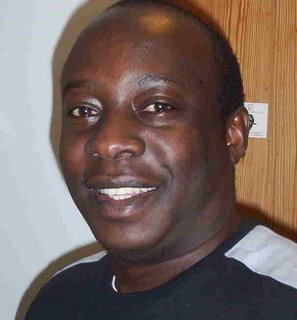This fall our church is going through the famous book "Purpose Driven Life". Many have found a new perspective on life through the study of his book.
Some of our members sent this interview with Rick Warren:
This is an absolutely incredible interview with Rick Warren , "Purpose Driven Life " author and pastor of Saddleback Church in California . His wife now has cancer, and he now has "wealth" from the book sales.
In the interview by Paul Bradshaw with Rick Warren, Rick said:
"People ask me, "What is the purpose of life?" And I respond: In a nutshell, life is preparation for eternity. We were made to last forever, and God wants us to be with Him in Heaven.
One day my heart is going to stop, and that will be the end of my body-- but not the end of me.
I may live 60 to 100 years on earth, but I am going to spend trillions of years in eternity. This is the warm-up act - the dress rehearsal.
God wants us to practice on earth what we will do forever in eternity. We were made by God and for God, and until you figure that out, life isn't going to make sense.
Life is a series of problems: Either you are in one now, you're just coming out of one, or you're getting ready to go into another one.
The reason for this is that God is more interested in your character than your comfort.
God is more interested in making your life holy than He is in making your life happy.
We can be reasonably happy here on earth, but that's not the goal of life. The goal is to grow in character, in Christ likeness.
This past year has been the greatest year of my life but also the toughest, with my wife, Kay, getting cancer.
I used to think that life was hills and valleys - you go through a dark time, then you go to the mountaintop, back and forth. I don't believe that anymore.
Rather than life being hills and valleys, I believe that it's kind of like two rails on a railroad track, and at all times you have something good and something bad in your life.
No matter how good things are in your life, there is always something bad that needs to be worked on.
And no matter how bad things are in your life, there is always something good you can thank God for.
You can focus on your purposes, or you can focus on your problems.
If you focus on your problems, you're going into self-centeredness, "which is my problem, my issues, my pain."
But one of the easiest ways to get rid of pain is to get your focus off yourself and onto God and others.
We discovered quickly that in spite of the prayers of hundreds of thousands of people, God was not going to heal Kay or make it easy for her.
It has been very difficult for her, and yet God has strengthened her character, given her a ministry of helping other people, given her a testimony, drawn her closer to Him and to people.
You have to learn to deal with both the good and the bad of life. Actually, sometimes learning to deal with the good is harder. For instance, this past year, all of a sudden, when the book sold 15 million copies, it made me instantly very wealthy.
It also brought a lot of notoriety that I had never had to deal with before. I don't think God gives you money or notoriety for your own ego or for you to live a life of ease.
So I began to ask God what He wanted me to do with this money, notoriety and influence. He gave me two different passages that helped me decide what to do, II Corinthians 9 and Psalm 72.
First, in spite of all the money coming in, we would not change our lifestyle one bit. We made no major purchases.
Second, about midway through last year, I stopped taking a salary from the church.
Third, we set up foundations to fund an initiative we call The Peace Plan to plant churches, equip leaders, assist the poor, care for the sick, and educate the next generation.
Fourth, I added up all that the church had paid me in the 24 years since I started the church, and I gave it all back. It was liberating to be able to serve God for free.
We need to ask ourselves: Am I going to live for possessions? Popularity?
Am I going to be driven by pressures? Guilt? Bitterness? Materialism? Or am I going to be driven by God's purposes (for my life)?
When I get up in the morning, I sit on the side of my bed and say, God, if I don't get anything else done today, I want to know You more and love You better. God didn't put me on earth just to fulfill a to-do list. He's more interested in what I am than what I do. That's why we're called human beings, not human doings.
Happy moments, PRAISE GOD. Difficult moments, SEEK GOD. Quiet moments, WORSHIP GOD. Painful moments, TRUST GOD. Every moment, THANK GOD. "











